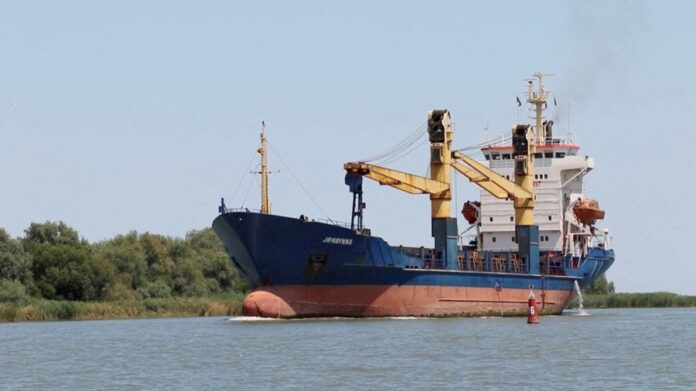Ukraine and Romania have agreed to check the depth of canals off the Danube river which Kyiv uses to export agricultural goods to try to increase the flow of traffic, Ukraine’s restoration ministry said on Thursday, according to Reuters.
The Danube is an important transport route for Ukraine as it tries to export grain and other products following Russia’s full-scale invasion a year ago, even though Moscow lifted a blockade of three Ukrainian Black Sea ports last July.
Romania said last month it was concerned by signs that Ukraine was dredging the Bystre canal that slices through a shared, ecologically sensitive coastal region, and asked if it could check the site.
Ukraine has denied violating any agreements by deepening the canal and has said it is ready to show Romania, a member of the European Union and the NATO military alliance, the work it has carried out.
Kyiv said representatives of Ukraine, Romania and the European Commission, the EU executive, had held talks on coordinating efforts to improve and develop export capacities through the Ukrainian and Romanian channels of the Danube.
“(We) Agreed to carry out soundings of depths on the Danube and coordinate for more efficient pilotage in order to increase shipments,” the restoration ministry wrote on Twitter.
Ukraine said last month the draught of ships passing through the Bystre Canal had deepened to 6.5 metres from 3.9 metres.
Ukraine has been transporting grain on the Bystre Canal as it develops alternative routes for its exports following the Russian invasion.
The Black Sea Grain Initiative brokered by the United Nations and Turkey last July, allowing Ukraine to export grain via three Black Sea ports, was extended in November.
It will be renewed on March 18 if no party objects, but Russia has signalled it is unhappy with some aspects of the deal and the Kremlin said on Thursday there were still „a lot of questions” remaining.
The EU also proposed a “solidarity lanes” initiative to last May to streamline and prioritise the passage of grains via Ukraine’s western borders.


